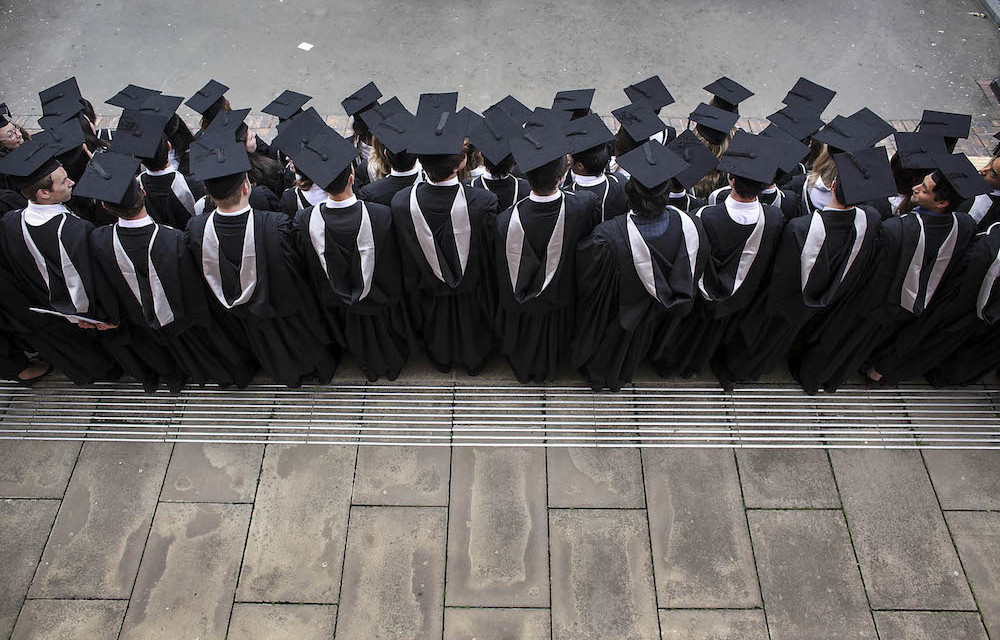
Universities in Africa need to secure funding for students and build new research collaborations while not excluding US partners
We are living in an increasingly fraught geopolitical landscape and uncertainties are felt globally, across many societal sectors. With the Trump administration in the US, the war in Gaza, escalating tension in the Middle East, threats of Russia expanding its war efforts across Europe, and conflicts in the Democratic Republic of the Congo, Sudan and Syria, uncertainties are mounting.
And open conflict is not the only woe in the world; climate change is wreaking havoc and income gaps are widening. The latter two global crises are hitting the poorest countries the hardest. This is acutely felt on the African continent.
Higher education is not immune to these shifts and is facing numerous challenges as funding spaces close down. Financial sustainability has been jeopardised, student and staff mobility has been made difficult or even curtailed, and the pressures on higher education are escalating amid a shortage of study spaces.
The Trump administration has clamped down on a range of research areas with funding being redrawn. Universities struggling to balance needs are calling for the necessity to reprioritise existing funds. So far clampdown seems to be a response by the Trump administration to rein in universities seen to take political stances that go against its policies. Noteworthy here is the withdrawal of close to $400 million from Columbia University in response to what is perceived as the university taking a pro-Palestinian stance and not acting on threats posed against Jewish students on campus in the wake of the war on Gaza.
The areas under threat are institutional approaches and responses to internationalisation and global engagement, manifested through equity, diversity and inclusion (EDI), student and staff exchanges and funding for both basic and cutting-edge research. For higher education institutions in South Africa and on the continent, this has significant implications for science cooperation and funds dedicated to fundamental research areas such as the health sciences. It further affects student and staff exchanges and access to education for US as well as South African and African students and researchers.
But there are also opportunities for generating new and innovative ideas and, where one door closes, another one opens. Funding and visa issuances for students and staff to study and conduct research in the US is now a problem and there are uncertainties of what might happen in Europe. In response, African and South African institutions could form new collaborations and expand recruitment of students and staff from markets on the continent and beyond that are no longer able to work with the US.
Leveraging off the partnerships we have is going to be more important and understanding how we, as a smaller South African and African sector, can work together to secure funding for students and build new research collaborations while not excluding our US partners will be crucial. If anything, current geopolitics tell us that we have never needed each other more and that we must continue to work with each other. We need to grab the opportunities while continuing to work with our US partners to ensure we keep building the sector and give support to existing partnerships and student and staff exchanges.
While our partnerships with US higher education institutions are fairly insulated from ideological and intellectual viewpoints, they are not immune to overall political shifts and policy implementations. If we do not engage in a manner that coheres with our partners, no matter the geographical location, we will never build the foundations for the education system that we want on the African continent. This is not to say that the academy should not take intellectual and political stances, but we need to rethink diplomacy. We need to rethink how we engage with a political context that does not cohere with democratic politics and the hard won liberties in South African and African but also the Global South and a global solidarity framework that is fast changing.
As South African higher education institutions we need to prepare to accommodate students, particularly those from the continent who might struggle to access education in the US. For example, we need to ensure that visa barriers are lowered and that funding sources are secured. In particular, we need to open our postgraduate and postdoctoral opportunities. This could also have huge benefits for the growth of the economy.
During the Covid-19 pandemic much work went in to ensure international collaborations continued and students had meaningful international experiences albeit online. This is work that we need to continue with partners around the world regardless of geographical location. Building these opportunities adds to our own sectoral resilience and will build capacity in delivering high quality and effective online programmes.
We live in a world that is rapidly changing, calling for the need to reconnect with and redefine how we relate to geopolitical shifts. Higher education is key to such a process and as South African higher education institutions we can lead the way.
Ylva Rodny-Gumede is the head of the Division for Global Engagement and a professor in the School of Communication at the University of Johannesburg.



